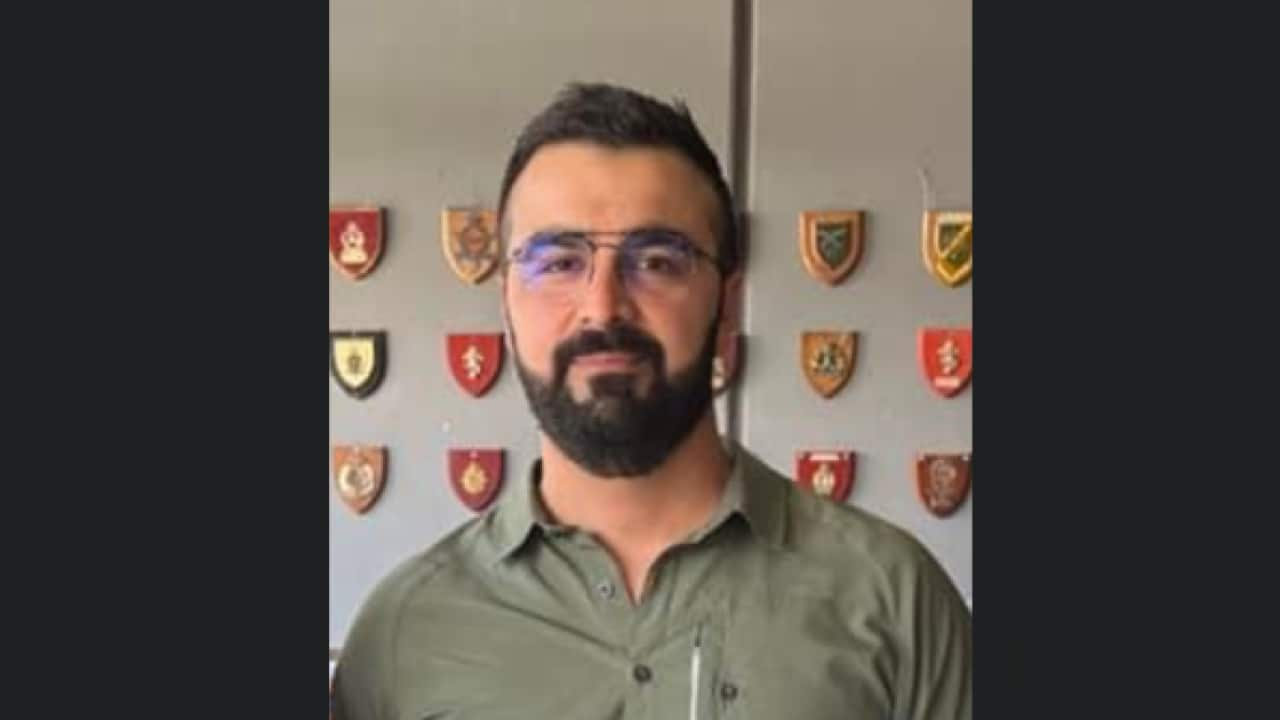The Young New Zealander of the Year recipient tells SBS Kurdish about how her life journey, experiences and parents’ sacrifice lead her on a fulfilling path to become the first Kurdish female lawyer in New Zealand.
Ms Gardi was born in a United Nations refugee camp in Pakistan in 1991.
She and her parents spent much of the first few years in the camp before eventually being moved into apartment style blocks where families would share a single room.

What was supposed to be a six month stay turned into a nine year residency, before having received the news they would be resettled in New Zealand.
“Due to the oppressive treatment from the Turkish government, my dad’s family fled to Iraq where they hoped to find somewhere safe to live,” Ms Gardi tells SBS Kurdish.
Her mother’s family were confronted with the brutal genocidal attacks in 1988 by the Bath regime in Iraq due to being Kurds.
“Mum was from the Kurdish region located in the Iraqi boarders; her village was attacked by chemical weapons and her mother and two siblings were killed in the attack," says Gardi.
"She was forced to flee into Iran where she sought refuge.”
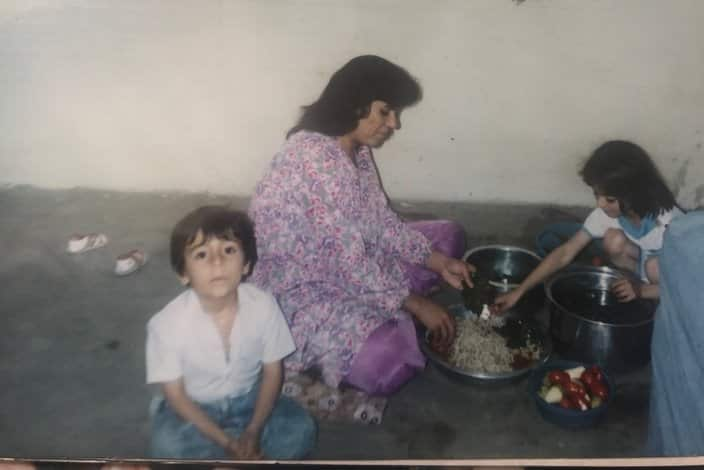
The Iran–Iraq War and first Gulf War, spanned from 1980 to 1988 generating several millions of primarily displaced Kurdish refugees, who mostly found refuge in Iran.
"The 80s were a particularly dangerous time to identify as Kurdish"
“My parents met in Iran as part of a Kurdish human rights movement. They spent much of their time advocating for the independence of Kurds,” Ms Gardi says.
“Of course with the Iran-Iraq war going on and all the siege of Kurdish existence banned, the 80s were a particularly dangerous time to identify as Kurdish so they were faced with a decision to risk their safety or just flee in the hope of arriving somewhere safe for their children."
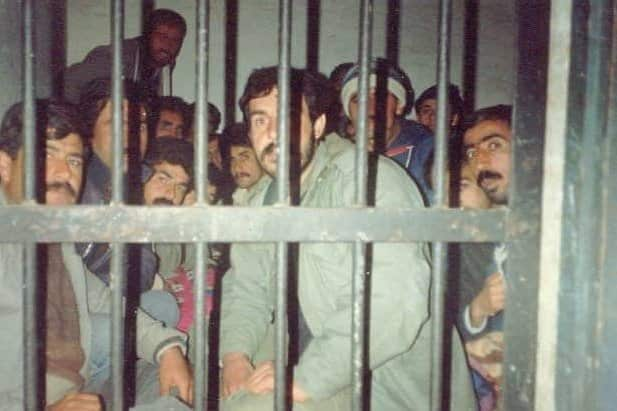
The Gardi family crossed the border into Pakistan in 1989 and claimed asylum. There they were granted instant status as refugees due to their dire circumstances.
But life was about to take another turn for a young Ms Gardi. When she was six-years-old, her family was finally given residence in New Zealand by UNHCR officers in Pakistan.
“I faced a lot of prejudice and discrimination for being different, for looking different.”
It wasn’t easy. She was faced with a huge culture clash.
“Trying to balance values of each (culture) was a struggle and often I found it difficult to find that balance as some values and traditions are in stark contrast,” Ms Gardi explains.
“I faced a lot of prejudice and discrimination for being different, for looking different.”
She said this was particularly exacerbated after 9/11.
"All of a sudden, children in my class started pointing out I looked different, started questioning where I was from, whether I was a terrorist, if I had any affiliation with the Taliban or with terrorists’ regimes."
"This was really stressful and distressing for me; being the daughter of human rights activists, being the daughter of a whole line of Kurds fighting for freedom and human rights and victims of dictator regimes and terrorism, to be affiliated with terrorists was very upsetting."
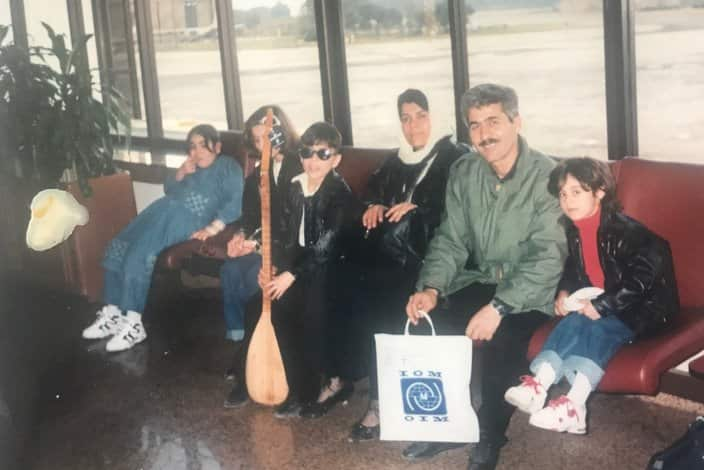
It forced a young Ms Gardi into a deep sense of denial about where she was from and her identity. She didn't even want to acknowledge she was different.
"It was difficult enough as a child to understand why I didn’t have a flag on my school walls, why I didn’t have my country represented at international events, why I couldn’t point on a map and say this is where I was from," she says.
"It was difficult to understand that and why I was born stateless, let alone trying to explain that to my peers and why we didn’t have a country.”
"The circumstances I was born into led me to an interest into human rights, equality and justice from a young age."
But it was exactly this experience; the hardships she faced growing up, the vivid memories of that hopeless camp, and most importantly, the sacrifice and struggle her parents endured which ultimately lead her to become the first Kurdish female lawyer, and more recently, Young New Zealander of the Year for her services to human rights causes.
“My choice to become a lawyer is related to who I am as a person, my history and my identity as a Kurd," she says.
"The circumstances I was born into led me to an interest into human rights, equality and justice from a young age.
"I knew about the denial of human rights long before I knew what that meant as a concept.”
She explains that her first time going back to visit her parents Kurdish homeland, when she was a teenager, was the turning point.
“I had to cross three different borders to see my family," she says.
"I was confused as to why I could see Kurdish flags in the Kurdish region of Iraq but I was told not to talk Kurdish in public in Turkey and Iran in particular."
"I was confused why my Kurdish souvenirs were confiscated at the Turkish border.
"I remember my parents having to physically pull me away from Turkish military officers when I questioned why my things were being taken.
"I remember at 13-years-old and telling my grandparents I wanted to be part of the Kurdish movement for independence and to ensure everyone had equal rights.
"Naturally being the daughter of two very fierce human rights activists I thought how can I continue with their work as a passionate humanitarian.
"My areas of interest at school, my strength in English and speaking and debating lead me to a career in law very early on."
On being the first female Kurdish lawyer, she said it is a recognition not only for her but for her entire family, her parents who sacrificed everything so their dream of an education would be a reality for me.
“It is for my Kurdish people and the millions of voiceless refugees who drive my passion.”
She said that being named Young New Zealander of the Year came as quite a shock. “I was going about what I thought was my duty; to be a voice for the voiceless and to empower more young people to be champions of change.”
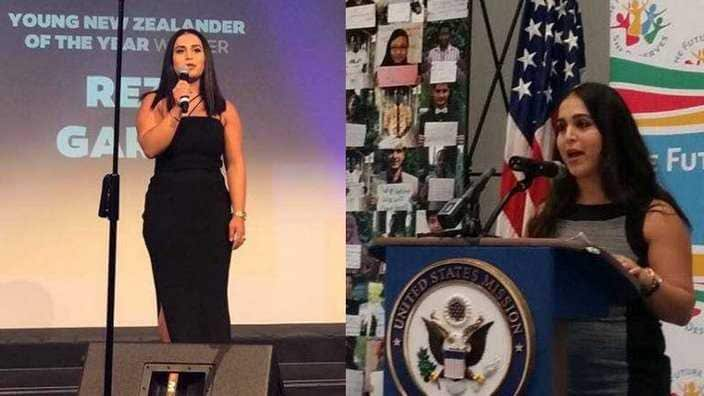
The now 26-year-old was awarded thanks to her services to human rights overall.
“On a global level, it was my involvement in establishing the global refugee youth advisory council to the UNHCR so that young refugees around the world are involved in decision making in a meaningful way," she explains.
"The second aspect was on a national level.
"I am the founder of the Empower Youth Trust.
"It is a support and mentoring initiative aimed at addressing the underrepresented of refugee youth of higher education.
"For me to be able to say I am a Kurdish lawyer and I am going to use my skills as a lawyer to contribute to the Kurdish cause, that for me is the most important aspect."
“The number of refugee youth in tertiary and university education is critically low.
"Through Empower our aim is to encourage young refugees to pursue meaningful pathways of their choice and encourage them through all the opportunities available in New Zealand.
"For the few of us who have managed to gain university qualifications and are passionate to use those qualifications and skills to contribute to our nation is the critical point for me.
"For me to be able to say I am a Kurdish lawyer and I am going to use my skills as a lawyer to contribute to the Kurdish cause, that for me is the most important aspect."

Ms Gardi says that she hopes those Kurdish youth who have been privileged with opportunity given by their respective nations use their qualifications and skills to make a difference.
“It is important to take every opportunity we are given and remember those of us who weren’t fortunate enough to be resettled," she says.
"We owe it to ourselves; we owe it to them to use these opportunities which they would literally do anything to have."



